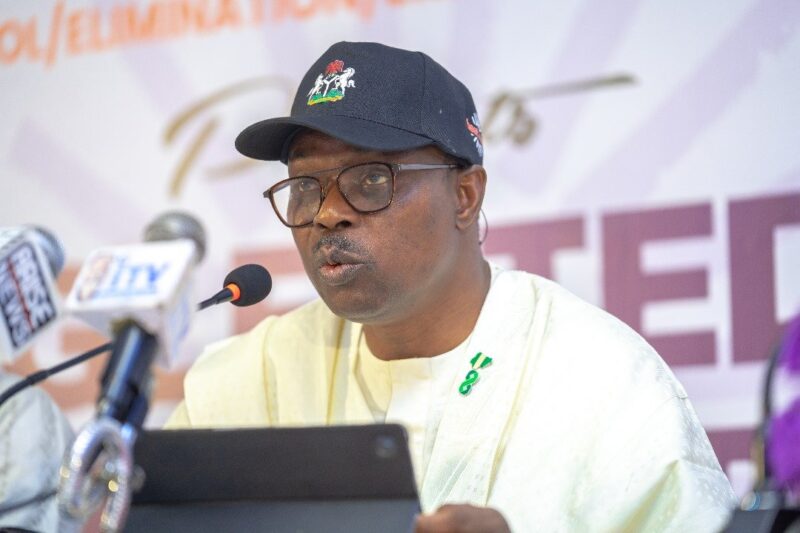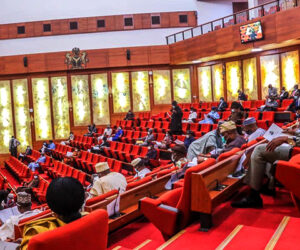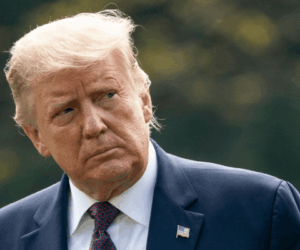Nigeria’s Minister of State for Health, Iziaq Salako, has said the country is not yet capable of locally producing vaccines for use.
Mr Salako, a medical doctor, spoke on Thursday night when he appeared as a guest on Channels TV’s Politics Today.
Seun Okinbaloye, the programme anchor asked the minister if Nigeria could produce vaccines now.
“Unfortunately, not,” he responded
The minister, however, said Nigeria under President Bola Tinubu administration was currently working hard to promote local vaccine production in the country.
Mr Salako stressed that producing vaccines requires careful economic and technical consideration, explaining that local production, for instance, must be economically viable.
“It is not enough to just say you want to produce vaccines. You must first consider comparative advantage. If producing locally costs more than importing, then it defeats the purpose. You must do all the analysis,” he stated.
The minister argued that although Nigeria’s population of over 200 million people was an advantage, vaccines produced in Nigeria must align with global standards to be marketable elsewhere.
“When you produce a vaccine that is not globally used, that’s a challenge. It’s high-end technology, and (that’s why) we can’t rush into it (local vaccine production),” he said.
‘We’re ready for COVID-19-like outbreaks’
Mr Salako also claimed, unlike before, Nigeria’s health security system is now strong and ready to handle global outbreaks such as COVID-19 pandemic.
“We have no cause for panic. There is 24/7 preparedness and constant surveillance to ensure health security,” he claimed.
“Our ability to detect and prevent pandemics has increased from 39 to 55 per cent,” the minister added.
‘Most federal hospitals now digitised’
Mr Salako boasted that 80 per cent of federal hospitals across Nigeria have been digitised and stressed that the digital process had simplified hospital operations in the country.
“I can tell you that close to 80 per cent of our federal, tertiary health institutions are today digitised,” he remarked.
The minister explained that the implication of the digitisation is that patients will no longer need to have physical cards to access healthcare.
“Some hospitals are able to make appointments on the phone through mobile apps that have been developed (by different health facilities,” he said.
Nigeria’s efforts into local vaccine production
Nigeria has been making unsuccessful efforts to promote local vaccine production in the country.
The Nigerian authorities, in 2022 for instance, signed an agreement with Cuba to implement actions on a number of scientific and technical development, vaccine production, to improve the health of Nigerians.
Like other efforts, the signing of the agreement has not yielded the desired results on local vaccine production in Nigeria.
In April this year, Director of Food and Drug Services in the Ministry of Health and Social Welfare Olubunmi Aribeana argued that local manufacturing of pharmaceuticals and vaccines was “critical” to achieving medicines security in Nigeria.
Director-General of NAFDAC Mojisola Adeyeye corroborated Mr Aribeana in October on the need for vaccine production in Nigeria and then urged pharmaceutical manufacturers in the country to invest in local vaccine production to prepare against future public health crises.
READ ALSO: FG pledges to revitalise PHCs to drive universal health coverage
But the situation is yet to change.
As Nigeria continues to struggle in the quest for local vaccine production, procurement of foreign-made vaccines is costing the country billions of Naira.
On Wednesday for instance, Minister of Finance and Coordinating Minister for the Economy Wale Edun announced that the country was seeking to raise about N150 billion to fund vaccine procurement for 2025 and 2026.
With the development, Nigeria’s health spending now accounts for 5.2 per cent of the national budget, up from just over three per cent a few years ago.










